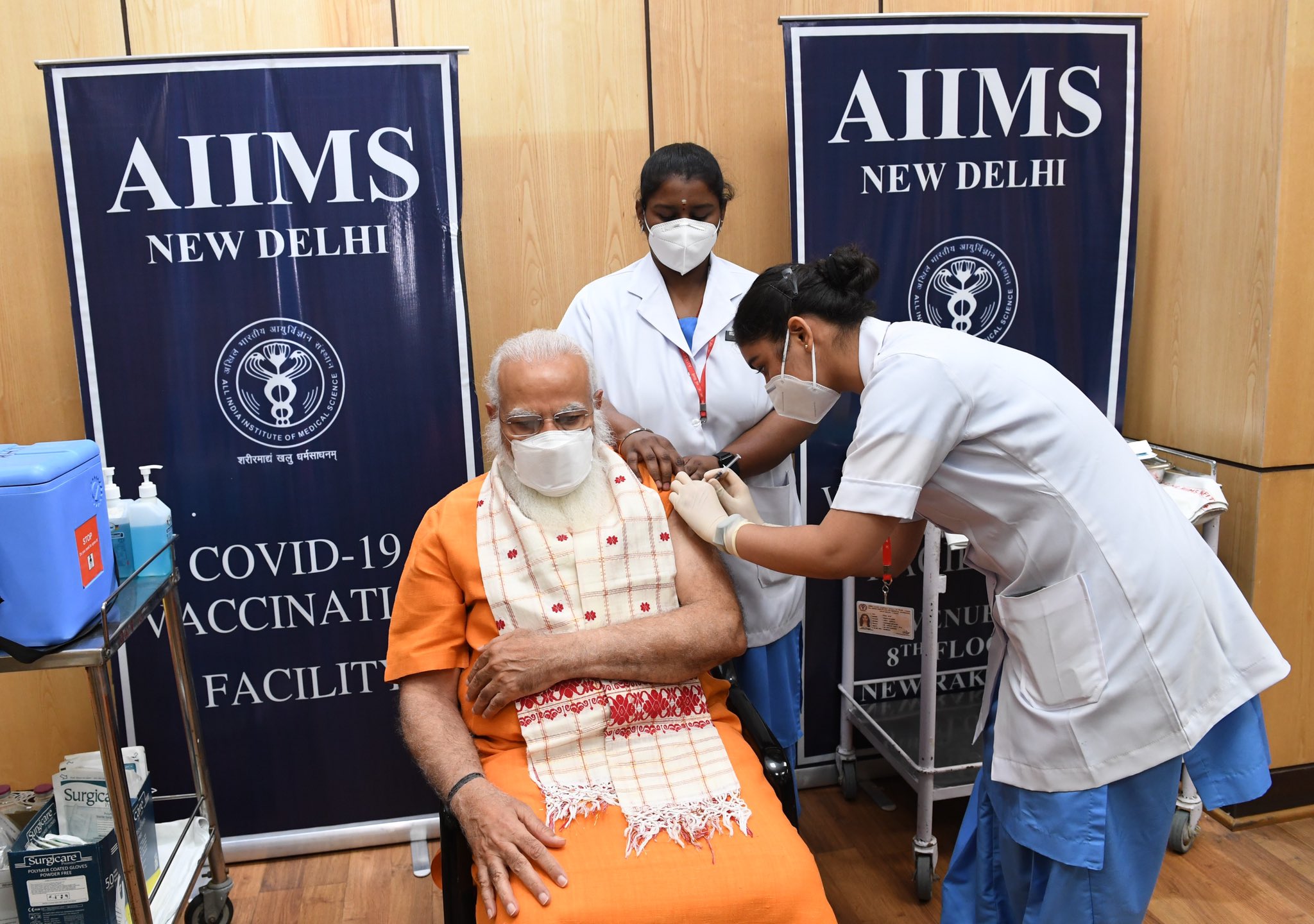
‘Eligible? Get shot soon': PM after 2nd dose, as more states talk of shortage
Two nurses at AIIMS on Thursday (April 8) administered Prime Minister Narendra Modi the second dose of the indigenous COVID vaccine Covaxin, 37 days after his first dose on March 1, the day the nationwide vaccination was extended for those above 60 years of age and those over 45 years with other illnesses.

Two nurses at AIIMS on Thursday (April 8) administered Prime Minister Narendra Modi the second dose of the indigenous COVID vaccine Covaxin, 37 days after his first dose on March 1, the day the nationwide vaccination was extended for those above 60 years of age and those over 45 years with other illnesses.
The PM urged all those eligible to get vaccinated against COVID-19. “Got my second dose of the COVID-19 vaccine at AIIMS today (Thursday). Vaccination is among the few ways we have to defeat the virus. If you are eligible for the vaccine, get your shot soon,” Modi tweeted and shared a link to the CoWin website, a portal to register for the vaccine.
Covaxin is developed by Bharat Biotech and the Indian Council of Medical Research (ICMR), which has been linked to vaccine hesitancy because of its clinical trials status. The other vaccine Covishield is manufactured by Pune-based Serum Institute, which is developed in partnership with Oxford University and pharmaceutical giant AstraZeneca.
The Prime Minister’s second vaccine dose was given by two nurses, one of whom had given him his first shot as well. He is among over nine crore Indians who have so far been inoculated.
Also read: COVID-19 vaccination at offices for 45+ from April 11
The country has seen the biggest daily surge of over a lakh cases. On April 8, India reported over 1.15 lakh new cases as the total number of infections stood at over 1.28 crore.
Meanwhile, several states have complained about vaccine shortage. Maharashtra, Jharkhand, Punjab Uttarakhand, West Bengaland Andhra Pradesh said they have a limited stock of vaccine, and if the fresh stocks don’t arrive, it would affect their inoculation drive.
Maharashtra Health Minister Rajesh Tope said on Wednesday that the state stock would last only three days. “We have been vaccinating around 5 lakh people every day. However, several vaccination centres in Vidarbha and others parts of the state have closed for want of the vaccines,” he said.
Jharkhand Health Secretary KK Soan said the state government sent out requests to the Centre for more vaccines twice, but it has not received any new stocks. “The state quickly needs at least 5 lakh doses”, said Soan. He said over 18 lakh individuals have been vaccinated so far in the state.
In Bihar, sources said more people were turning up for the vaccination especially after Holi. Principal health secretary Pratyay Amrit said the state government was trying to ramp up daily vaccinations to at least 4 lakh.
At Noida and Ghaziabad (Uttar Pradesh), several people were reportedly sent back from vaccination centres which reported limited vaccine stocks. West Bengal reported availability of only 12 lakh doses.
Also read: Can’t extend COVID shots to all, says Centre amid worrying case surge in 3 states
However, Health Minister Harsh Vardhan reacted sharply to such reports. He said he had seen “utter casual approach” of the Maharashtra government in combating the pandemic. “Today Maharashtra not only has the highest number of cases but also test positivity rates in the world. Their testing is not up to the mark. Focusing all their energies on playing politics and spreading lies to create panic is not going to help the people,” he said.
Vardhan was equally critical of the Congress-ruled Chhattisgarh government, which, he said, had refused to accept Covaxin when it was cleared for emergency use. He said the quality of testing must improve in Karnataka, Rajasthan and Gujarat.

